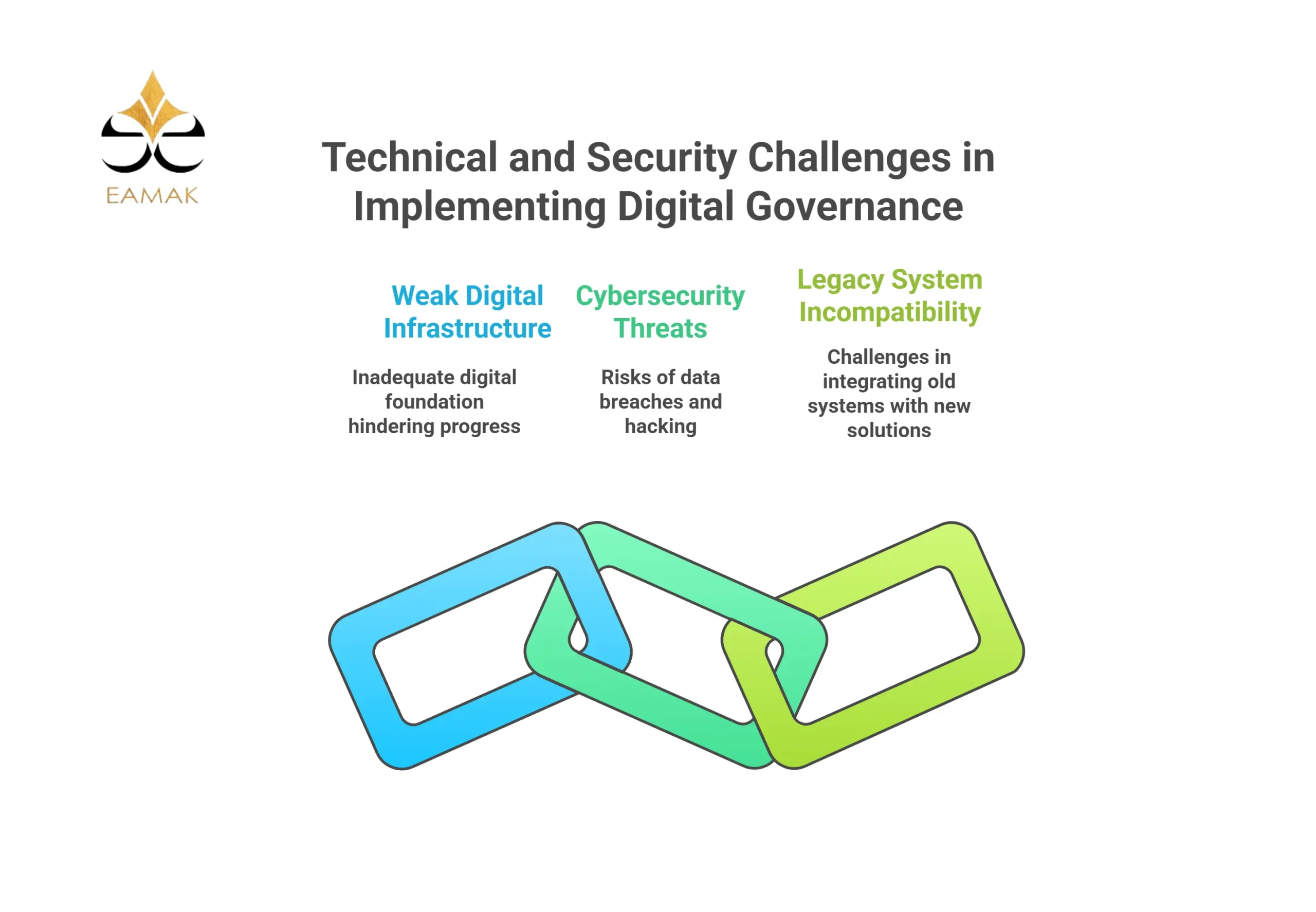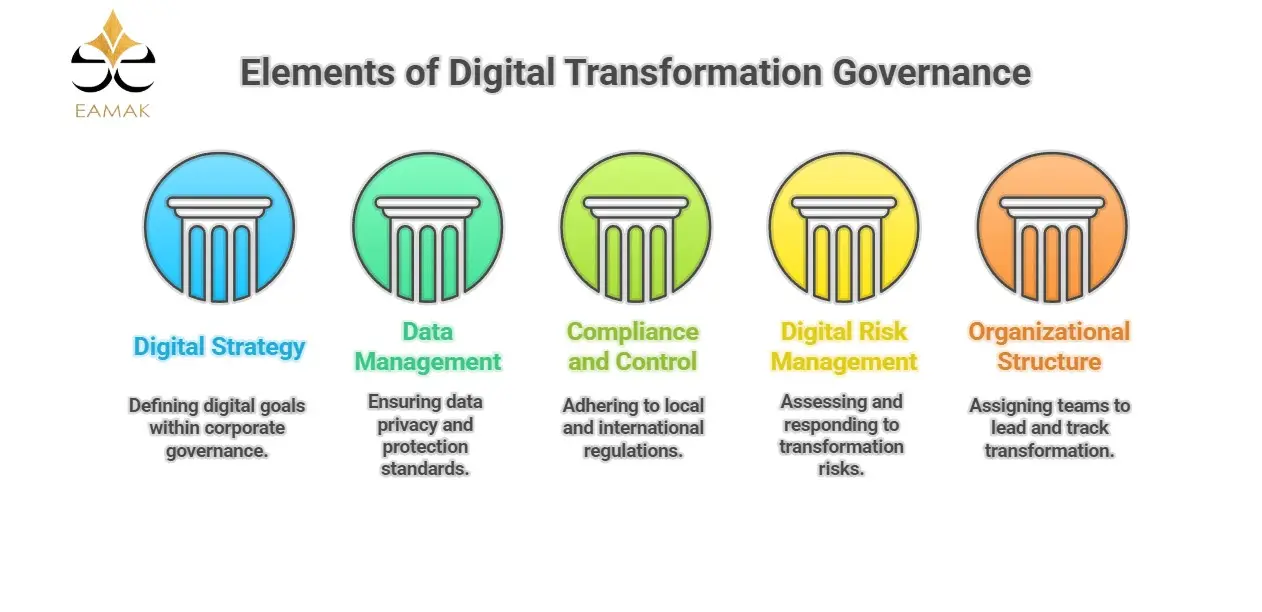How Does Digital Transformation in Governance Enhance Your Company’s Performance?
- Posted by:
- Category: Uncategorized

Digital transformation in governance is no longer a luxury or an optional upgrade; it has become a strategic necessity for any company aiming to improve its performance and enhance transparency. If you’re a business owner or manage an organization, this article will guide you through how technology is reshaping the concept of governance and unlocking new opportunities for smart and sustainable growth.
Introduction to Digital Transformation and Its Impact on Governance
In this introduction to digital transformation and its impact on governance, we shed light on the essential role modern technologies play in reshaping management and control mechanisms within companies.
In an era where technological innovations are rapidly evolving, digital transformation has become a central component in advancing the business environment. As the use of digital tools expands, there’s a growing need to revisit governance frameworks within companies.
Digital transformation in governance is no longer a choice but a strategic necessity to increase transparency, improve efficiency, and enable data-driven decision-making.
This article explores the role of digital transformation in governance and the impact of digital technologies on management and control mechanisms within companies, with a special focus on the Saudi market and its digital future in this field.
Modern Technologies Influencing Governance
Modern technologies influencing governance include innovations such as Artificial Intelligence (AI), Blockchain, the Internet of Things (IoT), and Big Data Analytics.
These technologies directly contribute to improving companies’ ability to monitor performance, reduce human error, and access real-time data.
For example, AI helps in assessing risks, while blockchain technology enables transparent and reliable tracking of transactions, reinforcing the principles of sound governance.
Understanding these modern technologies is crucial for any organization looking to modernize its structure and enhance institutional performance.
How Does Technology Improve Transparency?
One of the key benefits of digital transformation in governance is the significant improvement in institutional transparency.
Modern technologies provide effective tools for recording and documenting administrative decisions and procedures, making it easy to trace and review them at any time.
Electronic data management systems and real-time performance reports allow decision-makers to exercise effective oversight and reduce the risks of corruption or data manipulation.
So, how does technology improve transparency? The answer lies in the use of digital tools that offer all stakeholders, whether shareholders or regulators, a clearer view of administrative and financial operations.
Technical and Security Challenges in Implementing Digital Governance

Despite the vast benefits of digital transformation in governance, there are technical and security challenges that must be addressed to ensure successful implementation.
The most notable of these challenges include:
- Weak digital infrastructure.
- Cybersecurity threats and hacking risks.
- Incompatibility of legacy systems with modern digital solutions.
These technical and security challenges in implementing digital governance can slow the adoption of smart solutions unless preventive strategies are adopted.
These may include investing in cybersecurity, continuous employee training, and regularly updating systems.
The Role of Technology in Improving Governance and Compliance Reports
Financial and compliance reports are vital components of any successful governance system. This is where the role of technology in improving governance and compliance reports becomes clear, by offering digital platforms that simplify the report creation process and reduce the likelihood of human error.
Data analysis tools provide companies with deeper insights into performance trends and regulatory compliance, which in turn enhances the quality of reports and supports data-driven decision-making.
By digitizing governance, these reports become more integrated and transparent, playing a key role in building trust between the company and its investors.
The Future of Digital Governance in the Saudi Market
Saudi Arabia is witnessing rapid progress in digitalization, directly impacting the adoption of digital transformation in governance across various sectors.
As part of Vision 2030, the Kingdom has launched several strategic initiatives to enhance transparency, embed governance principles, and achieve digital sustainability.
The future of digital governance in the Saudi market looks promising, especially with continued government support for digital transformation, encouragement of innovation, and the establishment of flexible legal frameworks that motivate companies to adopt digital governance systems.
One of the most notable features of this transformation is its inclusiveness across all types of companies, including the governance of family businesses, which today increasingly require digital tools to support their transparency and long-term sustainability.
Among the most notable initiatives:
- The “Etimad” platform, which facilitates government financial processes.
- The “Yesser” program, which accelerates the digitization of public services.
- The efforts of the Saudi Data and Artificial Intelligence Authority (SDAIA) to harness AI for better management and governance.
Thanks to these developments, Saudi companies have a real opportunity to adopt advanced digital governance models, not only to ensure compliance but also to build strong competitive advantages, attract foreign investments, and align with the global digital economy.
Digital Transformation Governance
Digital transformation governance is defined as the institutional framework that regulates how digital technologies are integrated within companies, ensuring alignment with strategic goals while promoting transparency and compliance. It goes beyond the technical aspect to encompass policies, data management, compliance, and risk oversight.
Its importance lies in transforming digitization from a set of technical tools into a comprehensive organizational process that enhances decision-making, reduces risks, and accelerates performance, ultimately providing businesses with a sustainable competitive advantage in a rapidly evolving market.
What Are the Elements of Digital Transformation Governance?
 These are a set of components that help companies manage digital transformation while balancing technology and management. The key elements include
These are a set of components that help companies manage digital transformation while balancing technology and management. The key elements include
- Digital Strategy: Defining digital goals within the framework of corporate governance.
- Data Management: Ensuring data is collected and used according to privacy and protection standards.
- Compliance and Control Policies: Ensuring adherence to local and international regulations.
- Digital Risk Management: Assessing transformation-related risks and creating response plans.
- Organizational Structure: Assigning specialized teams to lead transformation and track performance.
These elements form the foundation of a comprehensive governance system that supports organizational goals during digital transformation.
They also serve as an important entry point for a broader understanding of corporate governance and its role in fostering a transparent and accountable institutional culture.
Conclusion
Digital transformation in governance is a strategic shift that has become indispensable in today’s fast-paced and complex business environment.
Companies that embrace this transformation and invest in the right technologies will be able to improve their institutional performance, build trust with stakeholders, and secure long-term sustainability.
Why Choose Eamak?
Amid technological challenges and digital opportunities, Eamak Financial and Administrative Consulting offers you integrated solutions to help apply digital transformation in governance within your organization.
We don’t just deliver theoretical plans, we walk with you through every step of the actual implementation to ensure real, measurable results.
Whether you’re aiming to improve transparency, enhance operational efficiency, or build advanced compliance reports, Eamak’s experts have the knowledge and skills to provide tailored consulting services that suit your company and its market.
Contact Eamak today and start your journey toward smarter and more efficient digital governance.
